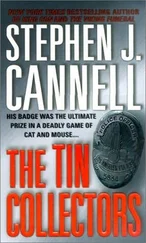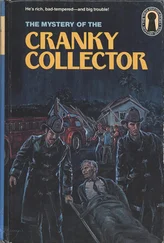Jonathan returned home with a week’s suspension.
“How does the other guy look?” his father asked.
“Bad,” said Jonathan.
Then Dan was satisfied.
Jonathan’s mother wanted to take him to the doctor, but Dan said he would heal better naturally, and so the break mended on its own, into the bold and busted nose Emily insisted she loved anyway.
He skipped two grades, read Ayn Rand, and planned to go to Harvard and become president of the United States, and make a gazillion dollars. Harvard didn’t work out. He hit a speed bump at Woodrow Wilson High, where he was too bright and warlike to get along. He got into trouble in his senior year, a brawl involving alcohol and school property, and he was not allowed to graduate—a fact he enjoyed telling interviewers. He could have done time in summer school, but he took the GED instead and enlisted, serving in Desert Storm, after which he attended Dartmouth, where he became a rugby player and confined his scuffles to the field. He had not yet explored politics, but the gazillion dollars went without saying. He had enormous confidence. He simply knew what to do. Was this good judgment or the extraordinary financial moment? History had never been his subject.
Investors fought to place large sums in Jonathan’s hands. He seemed a new breed, part genius, part industrialist—a game changer—and Jonathan did not disabuse them of this notion. But Emily never looked at him this way; she knew his moods and saw through his stratagems. She understood his business as well, because she’d blazed the trail. Long before ISIS, Jonathan had heard of Emily and Veritech. Back in 1996, when he was still pursuing his Ph.D. at MIT, he caught his first glimpse of her. He had been at Orion’s place, and Molly was flipping channels when Emily materialized on television—cool, slender, bright-eyed as she explained to an interviewer why she did not pursue an academic career in computer science.
“That’s the CEO of Veritech?” Jonathan exclaimed.
“Why are you surprised?” Orion asked. “That’s Emily Bach. Who did you think it was?”
“You know her?”
“I’ve known her forever,” Orion said.
“Introduce me,” Jonathan said. “I’m serious.”
He’d turned back to the screen. She had the longest neck, delicate and white. Just the sight of her stirred him, but what she said next changed his life. She expressed exactly what he was feeling and had not yet put into words.
“I did think about a Ph.D. in computer science, but this is a time in industry where theory and practice are coming together in amazing ways. Yes, there’s money, but what really interests me is that private-sector innovation happens faster. You can get more done and on a larger scale and have more impact. With all the start-ups out there, I think this is a time like the Renaissance. Not just one person doing great work, but so many feeding off one another. If you lived then, wouldn’t you go out and paint?”
If you lived then …? Jonathan remembered those words when he entered MIT’s 50K business-plan competition with Orion, Aldwin, and Jake. Wouldn’t you go out and paint? The four of them took the T downtown to Filene’s Basement and bought cheap suits and bad-ass ties—screaming purple, scaly green like lizard skin. In those nasty clothes they presented and fielded questions from the judges. When they won their 50K seed money—pocket money, really—they drank all night and dropped out of school to found ISIS in the morning.
Jonathan abandoned MIT without a backward glance, foregoing orals, academic conferences, third-floor potlucks, and staid job prospects at Microsoft or PARC or IBM Almaden. Cannily, he convinced his advisor to come along for the ride, naming the eminent cryptographer, Oskar Feuchtwangler, Senior Scientist. As a finishing touch, he proposed stealing Mel Millstein, the best of the computer-science administrative assistants, and naming him Director of Human Resources.
Jake had balked at this idea and suggested that hiring Mel away might alienate the department.
“You were fine with Oskar,” Jonathan pointed out.
“He’s just taking a leave of absence,” said Jake, “and he’ll come back. He’ll always be around. Once Mel is gone, he’s gone. We’d be stealing him.”
“It’s his choice if he wants to leave,” said Jonathan.
Jake shook his head. “Maybe we don’t want to burn our bridges.” He had always been the most academic of the four cofounders, the most theoretical, as he was also the hairiest, with a wild mop of brown curls and thick unruly eyebrows. Dark-eyed, driven, shy, he was an idea man, a Westinghouse finalist in high school, and a gifted pianist as well, a former student in Juilliard’s pre-college division. Lockbox had been built from Jake’s algorithms. ChainLinx came about as a series of answers to Jake’s questions. The others needed him and his exceptional mind. Technically they were formidable, but Jake was creative. He pointed out, “We might want to go back to school eventually.”
Jonathan raised an eyebrow. “What fun would that be?”
He liked a good time. His idea of a corporate Christmas party was paintball. His highest praise, uttered without an ounce of irony: “You guys are animals.” His rough edges never failed to impress.
“The guy’s a natural,” the VCs whispered to one another, and shook their heads at Jonathan. Oh, brave new world that had such creatures in it. And yet he had a thoughtful side; he recognized and pursued excellence in every form, particularly in the shape of Emily. He loved her brilliant, principled mind. Why did she test him then, tempting him with Veritech’s secret project? How could she, knowing him as she did? He was not high-minded on his own, and he looked to her to model what his soul might become, once he got exactly what he wanted. When he was rich and eminent, a policy maker and philanthropist, Emily would be his wife and chair the family foundation and they would have daughters delicate like her, and athletic sons like him—and all their children would go to Harvard and major in math and play rugby and take up sailing. This was how Jonathan would live when he lay down his arms and beat his sword into time-shares. But not yet! Emily’s behavior baffled him. She had set up a kind of competition, trusting him like that, and demanding a secret from him in return. Did she doubt he loved her? Did she want some expensive proof?
After Thanksgiving, when he met with ISIS CEO Dave, Jonathan kept electronic fingerprinting to himself. This was not difficult. Dave was rich and he was experienced, with his years at IBM and BBN behind him. He was a sport, approximating native dress at ISIS, so that where Jonathan wore jeans, Dave wore khakis, and where Orion wore a Grateful Dead T-shirt, Dave wore an Oxford button-down. Dave knew about marketing and goals and five-year plans, but even in his shirtsleeves, he would always be a suit. Dave just barely understood what ISIS was doing now, and could scarcely intuit coming trends. He had his silver-gray hair styled in a salon and he lived in a Cambridge mansion, a brown Victorian on Highland Ave. That wasn’t even his first mansion. His first had been companies ago, along with his first wife and first set of kids. Retro CEO Dave carried a fountain pen. He even played golf. The man was like a car with fins.
Jonathan sat in Dave’s office overlooking redbrick Kendall Square. The company was about to go public, but it was newer than Veritech, and in keeping with the accelerating market, its rise had been faster. ISIS had yet to build a leafy campus out in Dedham, or renovate a funky mill. ISIS squeezed into an ordinary flat-pack office building off Broadway, starting with the top floors, and working its way down until the company leased the entire building. Electricians and carpenters had just renovated the first floor, finishing the space as a control center with a bank of monitors displaying Secure Web Traffic across the globe. The control center had a space-age look, part NASA, part flight deck from the Starship Enterprise . If the control center was designed to impress visitors, Dave’s office was built to reassure them. New hire, designated grown-up, the CEO held court behind an actual mahogany desk with family photographs in frames.
Читать дальше












